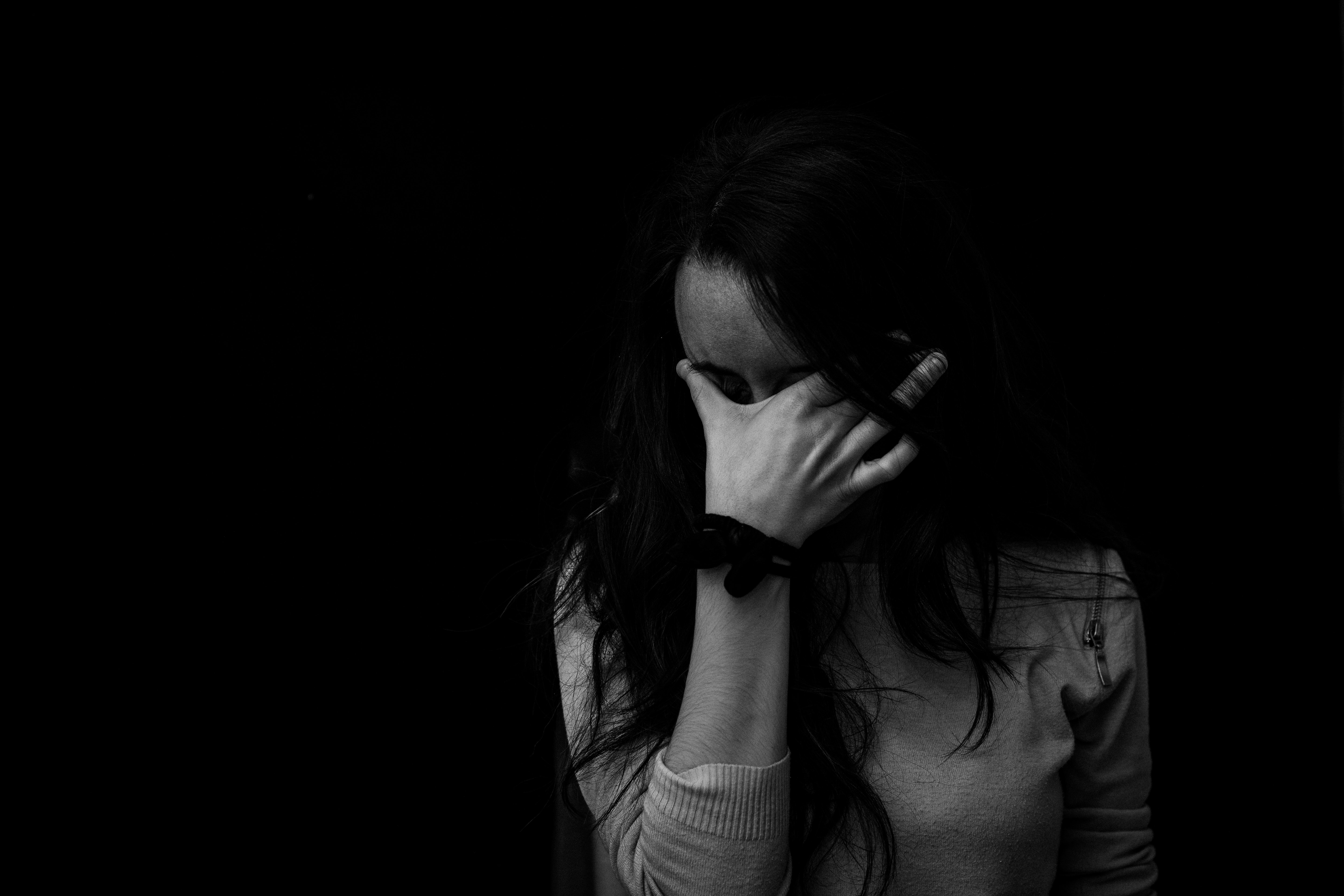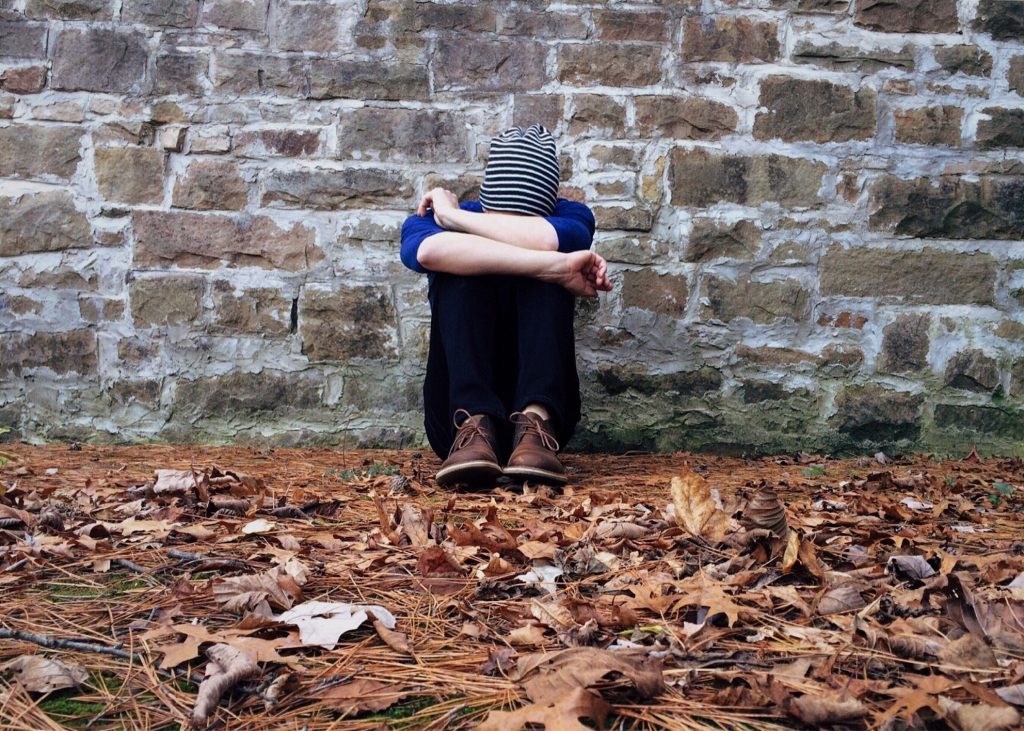
Putting on a Brave Face… Are You Hiding Your Depression?
Depression is an often silent feeling that creeps up on us and isn’t easy to identify straight away. This is especially true for those who have relocated. Because it’s normal to feel alone or sad while away from “home” or when your support system is not yet strong enough – right? Well, if you find that you’re just not bouncing back, you may be depressed. Understanding depression and its signs, including the more subtle ones, can help you to unmask what’s really going on.
Do you ever feel absent from your own life or that you are holding your breath?
Do you feel unmotivated to do things you once enjoyed?
Do you feel your friendships drifting away? Are you hiding pain behind that smile?
Or do you know someone who is feeling this way?
If this has been going on for a while, it’s possible that you, or your loved one, is experiencing depression.
Depression is a persistent extreme sadness that affects the daily lives of those who suffer from it. It can be described as a period of low self-esteem, severe loss of interest in activities you used to enjoy, and a significant reduction in energy.
Types of depression
Although we each experience depression differently, there are four common types of depressive traits that tend to affect people*:
- Major depression – extreme sadness and low mood, as well as some or all of the symptoms above, for a long period of time
- Situational depression – a depression that follows specific stressful events, like moving to a new country, changing jobs or adjusting to a new culture
- Seasonal affective disorder (SAD) – affects those who have moved to countries that do not get much sunlight, especially in the winter months
- Postpartum (or postnatal) depression – major depression shortly after giving birth. It’s true that many women also get depressed when they cannot conceive at all.
How does it feel to have depression?
Some describe it as a dark presence following them around; others feel distant from their own lives. Though your experience of depression is unique to you, being attentive to the more common signs is a first step to getting the right kind of support.
Note that the following list is not a diagnosis or a checklist; nor is it exhaustive. There are many other symptoms of depression and this is a guide only. Bear in mind that some of the signs below may be as a result of other conditions (e.g. health conditions).
- You feel constantly sad, irritable or lethargic.
- You feel hopeless and helpless, as if no one is there to help.
- You don’t ask for help because you don’t want to be a burden on others.
- You’ve withdrawn from social situations.
- You feel you are not worthy or that you are not “good enough”.
- You find it hard to imagine the short and long-term future. You may want to stay at home, or in bed, and not think about goals or commitments.
- Your sleeping and eating patterns have changed.
- You feel guilty about how you are feeling.
- You’re struggling to concentrate. You may find yourself falling behind on work or assignments.
And some of the more hidden signs…
Many people who suffer with depression put on a brave face, hiding the pain behind their smiles. Why would someone do this?
Because it is hard to know for sure what’s going on, or to accept that we have depression. We may feel judged or ashamed. We also don’t want to burden others and may be afraid to ask for help.
Be on the look-out for the more subtle signs. The list below covers some fairly common behaviours in those who are trying to hide their depression, whether consciously or not:
- Avoid talking about how they feel or deflect people who try to engage with them about their emotions.
- Try to seem happy and pleasant, so that they can avoid questions like “Is everything okay?” or “Is there something you’d like to talk about?”.
- Respond to their low mood by focusing on work as a way to “forget”.
- Experience changes in sleeping and eating patterns.
- Tend to expect the worst; their attitude towards, life, work and love is generally pessimistic.
- Project negatives thoughts into the future and feel that things will always be this way; e.g. a single person who thinks they will always be alone.
- React in a highly emotional way to situations or discussions that are not emotionally loaded (or even when watching a movie). The person may apologise immediately for this reaction so they don’t have to talk more about it.
It can be difficult to help someone who isn’t able to recognise or admit what is going on. If you notice these characteristics in someone you care about, it often helps to discuss depression more generally with the person.
For example, you might chat about a depressed friend, how he was behaving and how his therapist and support system helped him get through it. n this way, you show that you are available to this person, without making it personal. You show understanding and also pass on the message that they can overcome this.
Where to turn for help
If you aren’t getting better or experience more (or worse) symptoms, we advise you to seek professional help. This is a sign of strength, not weakness. The way you feel right now doesn’t have to be this way. Give yourself a chance.
You are most welcome to contact Expat Nest, if this feels right for you. We offer online consultations from professionally qualified and experienced counsellors. We also offer support in several languages and at a time that works best for you, in the comfort of your environment.
We are here to support you and to help you find light at the end of this dark tunnel.
*This article is not meant to diagnose depression but to highlight some of its more common trait. If you feel that you have symptoms of depression, we advise you to consult a doctor and/or mental health professional.
What other signs have you observed in people around you who put on a brave face, though their eyes tell a different story? Feel free to join the conversation below on this important topic, sharing only what you feel comfortable to share. If you found this article valuable, subscribe to our newsletter.
© Vivian Chiona
Photo: Juan Pablo Serrano Arenas / Pexels







